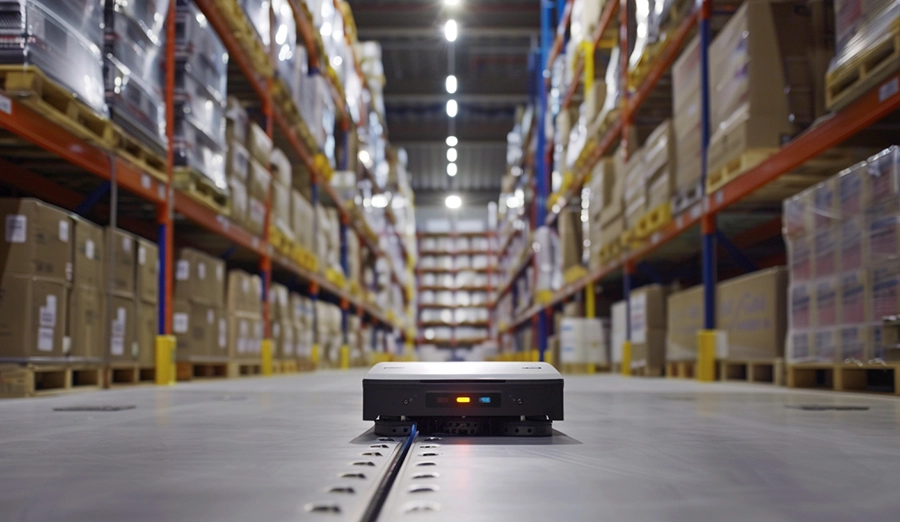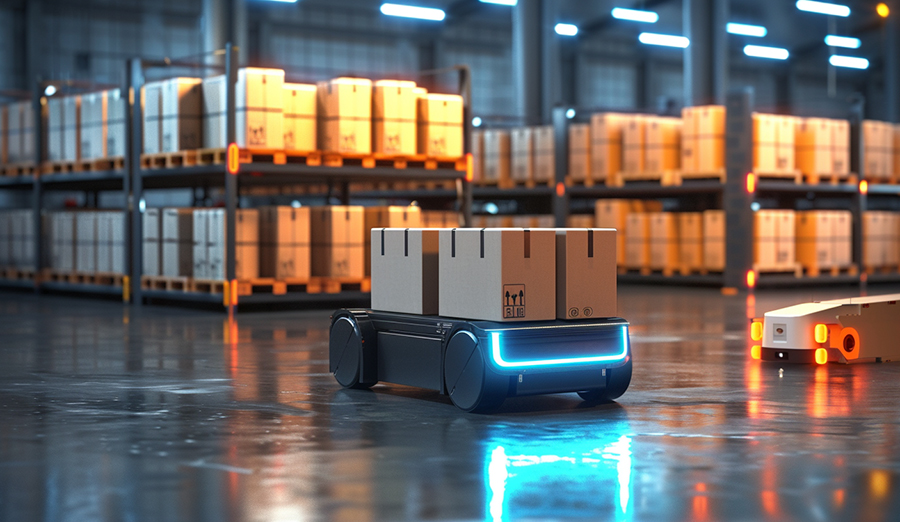
WIRELESS CHARGING IN THE NEWS
In the industrial sector, cost control and efficiency improvement are like the two wheels of a company's progress, neither of which can be lacking. Nowadays, industrial wireless charging technology is, with its unique charm, helping enterprises settle an economic account related to millions of operation and maintenance costs, demonstrating huge economic value from the perspective of TCO (Total Cost of Ownership).
The traditional industrial charging method has many drawbacks. The connecting components such as cables and plugs are not only prone to damage, but also frequent plugging and unplugging operations can lead to poor contact and other problems. This undoubtedly increases the maintenance frequency and replacement cost of the equipment. Moreover, the complex wiring system not only takes up space but also poses safety hazards. Once a fault occurs, the investigation and repair work is time-consuming and laborious, seriously affecting the production progress.
Industrial wireless charging technology is like a gentle breeze, blowing away the gloom that has been plaguing enterprises. From the perspective of TCO, its economic value is reflected in multiple aspects. Firstly, in terms of equipment procurement costs, although the initial purchase price of wireless charging devices may be relatively high, in the long run, it reduces the demand for a large number of connection components and wiring materials, and the overall equipment procurement cost will not increase significantly. Moreover, with the continuous development and popularization of technology, the price of wireless charging devices is gradually decreasing.
In terms of operation and maintenance costs, industrial wireless charging technology has demonstrated an incomparable advantage. As there is no physical connection, faults caused by plugging and unplugging, wear and tear, etc. are reduced, and the maintenance frequency of the equipment is greatly lowered. Enterprises no longer need to invest a large amount of human and material resources in regular inspections and maintenance, which also reduces the downtime caused by equipment failures and improves production efficiency. According to statistics, after adopting industrial wireless charging technology, the maintenance cost of equipment can be reduced by more than 50%, and the downtime can be shortened by about 30%. This means huge economic benefits for enterprises.
Energy costs are also an important component of TCO. Traditional charging methods have certain energy loss during the transmission process, while wireless charging technology adopts advanced principles such as electromagnetic induction and magnetic resonance, which can achieve efficient energy transmission and reduce energy waste. Meanwhile, the wireless charging system can automatically adjust the charging power according to the device's demand, avoiding overcharging and unnecessary energy consumption, and further reducing energy costs.
In addition, industrial wireless charging technology also has better adaptability and flexibility. It can operate stably in harsh industrial environments, unaffected by factors such as dust and moisture, reducing equipment damage and malfunctions caused by environmental factors. Moreover, wireless charging devices can be conveniently installed and moved. Enterprises can adjust the layout of the devices at any time according to production needs, enhancing the flexibility and adaptability of production.
In today's increasingly fierce market competition, enterprises need to constantly seek ways to reduce costs and improve efficiency. Industrial wireless charging technology offers enterprises a practical and feasible solution from the perspective of TCO. It not only saves enterprises millions of operation and maintenance costs, but also enhances their competitiveness and production efficiency. Let's seize the opportunity of this technological transformation, unlock the new code of industry, and inject new impetus into the development of enterprises. It is believed that in the near future, industrial wireless charging technology will become a standard feature in the industrial sector, bringing more considerable economic and social benefits to enterprises.







